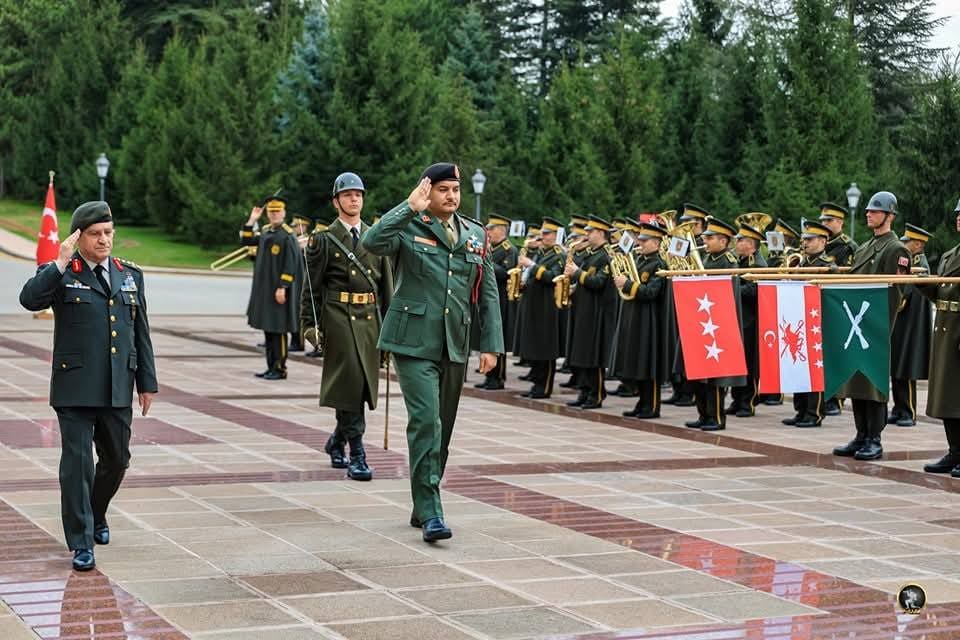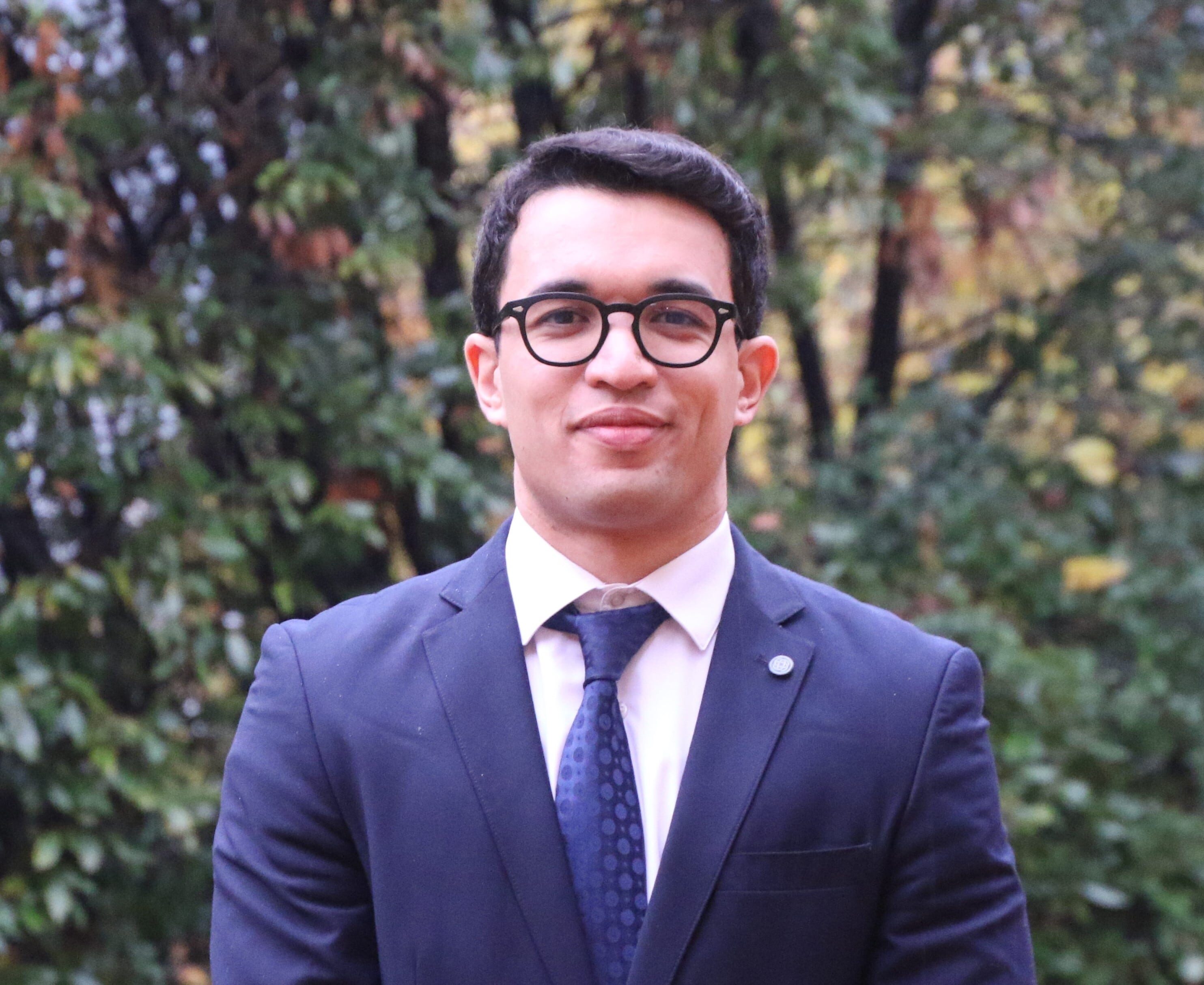Türkiye’s welcome of Saddam Haftar, son of eastern Libya’s de facto ruler Khalifa Haftar, was laden not only with ceremony but with implications for the North African country’s delicate balance of power. Walking down the red carpet in Ankara on April 4, the commander of land forces in his father’s self-styled Libyan Arab Armed Forces (LAAF) was received by the Turkish military’s terrestrial commander Selçuk Bayraktaroğlu. Saddam also met Defense Minister Yaşar Güler and other top military officials.
Ironically, the visit coincided with the anniversary of the launch of Haftar senior’s ill-fated 2019 attempt to seize Tripoli by force—an aggression that Türkiye helped repel through direct military intervention in support of the former Government of National Accord (GNA). Six years on, Libya remains mired in political deadlock, with no progress made in the UN-led efforts to establish a unified executive and hold elections. Ankara’s overtures came shortly after an announcement by Athens that energy giant Chevron plans to explore for undersea gas in a vast area south of Crete, prompting what appears to be a pre-emptive response from Ankara to counter Athens’ moves in the Mediterranean. Türkiye has been weakened vis-à-vis Greece by the fact that its 2019 memorandum with the GNA on maritime borders has yet to be ratified by eastern Libyan authorities, impeding access to the eastern Libyan coast near exclusive economic zones (EEZs) that Ankara disputes with Athens.
According to a statement from Saddam Haftar’s office, the visit focused on bilateral cooperation for regional and international issues of mutual interest. However, he and his hosts also reportedly discussed joint exercises and plans to train LAAF soldiers in areas including maintenance, mine clearance, technical support and operating Turkish-manufactured drones.
While reports of signed military agreements remain unconfirmed, Türkiye’s warm welcome to Saddam signals a strategic shift in its ties with eastern Libya, and its de facto recognition of the LAAF as a legitimate military actor—a break with years of branding it a “coup force” and being accused by the LAAF of sponsoring “terrorism.” Ankara’s unexpected embrace of Saddam raises critical questions about its evolving strategy in Libya and its implications for the country’s future and the wider region.
Betting on Saddam
Saddam’s visit represents the culmination of a pragmatic approach by Ankara since the cessation of hostilities in mid-2020. This initially involved outreach to the eastern-based House of Representatives (HOR), swiftly followed by the resumption of Turkish commercial activity in Benghazi. The true turning point, however, came with major Turkish relief efforts in the aftermath of the devastating 2023 Derna flood. This campaign paved the way for Turkish construction companies to reenter eastern Libya, where they are now actively involved in reconstruction projects led by the Derna Reconstruction Fund (run by Belqasim Haftar, another of Khalifa’s sons). Further solidifying ties, Turkish Airlines has resumed flights to Benghazi, and talks are underway toward possibly reopening a Turkish consulate there.
Ankara’s growing engagement with eastern Libya is propelled by a confluence of geopolitical and economic considerations. It also reflects Ankara’s evolving realization, gained through years of deep and often frustrating involvement in Libya, that the latter country’s formal political institutions essentially function as facades for the vested interests of powerful military power brokers in both east and west.
Under Haftar’s iron grip, the LAAF has maintained a degree of stability in eastern Libya and large parts of the south—home to Libya’s vast oil reserves. By contrast, the traditionally Turkish-aligned western camp lacks a unified military command and is persistently mired in internal power struggles. This difference, coupled with Türkiye’s economic ambitions, underscores the pragmatic rationale behind Ankara’s outreach to the LAAF and effective acknowledgment of its de facto authority in the east.
Since rising to command the most powerful units within the LAAF, 34-year-old Saddam has sought to solidify his position as a trusted and influential successor to his aging father. Despite persistent allegations of involvement in war crimes, Saddam has visited key cities in the region—reportedly including Tel Aviv—and cultivated extensive economic networks, notably including connections with officials from the Government of National Unity (GNU) in Tripoli.
Crucially for Ankara, Saddam Haftar also maintains long-standing and potentially lucrative financial ties with Türkiye. It has been reported that Türkiye acted as an intermediary for substantial funds seized by one of his brigades from the Central Bank in Benghazi in 2017—money later redirected to an undisclosed destination. Furthermore, he has been involved in the scrap metal and gold trade with Turkish brokers, while Türkiye has allegedly served as a vital financial conduit for illicit oil deals and fuel-for-crude swap schemes involving the Haftar family. Additionally, Saddam played a direct and arguably pivotal role in Qatari-mediated talks that successfully secured the release of seven Turkish nationals detained by his father’s forces in late 2021.
Thus, Ankara’s decision to engage directly with Saddam was deliberate and calculated. His April visit followed a prior invitation to Istanbul in October 2024 for the SAHA EXPO defense industry fair. His high-profile meeting with the Turkish defense minister was the first official encounter between a senior Turkish government representative and the LAAF. Saddam’s established financial links, demonstrated ability to navigate complex negotiations involving Turkish interests, and clear trajectory as a potential future leader in eastern Libya make him a pragmatic—and perhaps indispensable—point of contact for Ankara’s evolving strategy in the region.
Calculated Engagement
By hosting Saddam, Ankara conveyed several carefully calibrated messages on both the domestic and regional levels. Domestically, the message was that Türkiye would no longer confine its engagement to one camp within Libya. This recalibration reflects Ankara’s realistic assessment of the persistent fragmentation of political and security leadership in the west, in stark contrast to Haftar’s more unified camp. Regionally, the visit reflects Ankara’s efforts to position itself as a mediator capable of engaging with all significant actors. Notably, this comes after it normalized its relations with Haftar’s key external backers—Cairo and Abu Dhabi—while maintaining pragmatic, albeit complex, ties with Moscow. This multifaceted approach underscores a broader understanding in Ankara that effectively safeguarding its interests in Libya requires it to navigate rapidly evolving domestic and regional dynamics, particularly in light of the war on Gaza and the fall of the Assad regime in Syria.
Should Ankara gain the confidence of Haftar’s camp, it could position itself as Washington’s most trusted mediator in Libya. The U.S. has been seeking to encourage Haftar senior to reduce his reliance on Russia, which he justifies as necessary to counter Türkiye’s support for his rivals in the West. At the same time, the Haftar camp may see stronger ties with Türkiye, a key NATO member, as a vital way to reassure both Washington and Brussels, potentially preempting any future international isolation stemming from his relationship with Moscow.
In spite of its evolving approach to the east, Ankara has sought to reassure its allies in the west of Libya. At the Antalya Diplomacy Forum on April 11, Turkish President Recep Tayyip Erdogan and GNU Prime Minister Abdul Hamid Dbeibah publicly reaffirmed their commitment to continued bilateral cooperation. Shortly after this, senior Turkish military officials received Mahmoud Hamza—the GNU’s intelligence chief and commander of the 444th Brigade—who, like Saddam, enjoys U.S. backing in efforts to unify the Libyan army and contain Russia’s growing influence. All this hints at U.S.-Turkish coordination around the visit.
By building pragmatic relationships with both eastern and western camps, Ankara is consolidating its position—not only to protect its geopolitical and economic interests in Libya, but also to enhance its role as an influential regional player amid shifting alliances. However, this balancing act carries some risks, given the fragile balance of power, fluid alliances and intertwined agendas. Haftar is also attempting to navigate competing international contradictions in a complex game that could be changed more by surprises on the ground than by official visits and receptions. These developments could further embroil Türkiye in the internal Libyan conflict and complicate its relations with other regional and international powers active in Libya. Ultimately, Ankara’s bet on Haftar underscores a broader reassessment of its foreign policy—one increasingly driven by realism, flexibility and a clear understanding of evolving regional dynamics.


